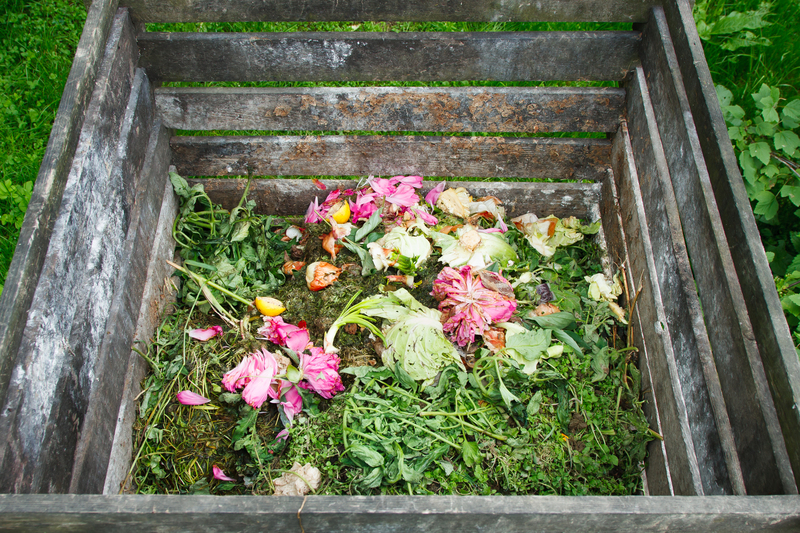Slash Your Spending with These Bulky Waste Items Removal Tips
Bulky waste can quickly overrun your home, clutter your yard, and drain your wallet if not handled properly. Whether you're dealing with old furniture, outdated appliances, or large garden debris, disposing of these heavy items can be both challenging and costly. But it doesn't have to be! In this comprehensive guide, discover all the savvy tricks and cost-efficient methods to slash your spending on bulky waste items removal while keeping your space tidy and eco-friendly.
Understanding Bulky Waste Items
Before jumping into savings strategies, it's important to clarify what exactly counts as bulky waste. These are items that cannot fit into regular trash bins due to their size, weight, or composition. Some common examples include:
- Old sofas, couches, and mattresses
- Broken fridges, washing machines, and dryers
- Large electronics like TVs and computers
- Garden waste, such as tree branches or lawnmowers
- Rugs, carpets, and fixtures
Most municipalities categorize these as items requiring special bulky waste disposal services. However, by leveraging a combination of smart strategies, you can cut down waste removal costs dramatically.

Why Is Bulky Waste Disposal So Expensive?
If you've ever received a quote from a professional bulky waste removal service, you may be shocked at the cost. Several factors drive these costs up:
- Labor Intensive: Bulky items often require multiple people to move safely.
- Special Equipment: Larger trucks/tools may be needed.
- Landfill Fees: Some transfer stations charge by weight or volume.
- Environmental Regulations: Certain electronics, mattresses, and appliances demand special disposal due to hazardous components.
But fear not. You can keep more money in your pocket and still maintain a junk-free home by using the following proven tips.
The Best Tips to Save on Bulky Waste Removal
1. Check with Your Local Council First
Many city or county governments offer free or low-cost bulky waste collections once or twice a year. In some neighborhoods, you just need to schedule a pickup in advance. Check their website or call for information about:
- Eligibility for free bulky item pickup
- Special events like "Spring Clean" or "Big Trash Days"
- Designated drop-off days at your local waste facility
Utilizing city services can be the single best way to slash your spending.
2. Repurpose or Upcycle Old Bulky Items
One person's trash is another person's treasure! Before rushing to the tip, consider these creative, cost-saving alternatives:
- Upcycle: Transform an old door into a new table, or use wooden pallets for garden projects.
- Offer for Free Online: Platforms like Facebook Marketplace, Craigslist, and Freecycle let you give away items for free. Many bargain hunters are happy to collect large items, saving you removal costs and landfill fees.
- Donate: Local charities, shelters, or thrift stores may accept gently used bulky items.
Turning your waste into resources for others benefits the community and your wallet.
3. Consider Selling Before Scrapping
Surprisingly often, old furniture, exercise equipment, or appliances are worth something--especially if they're still functional or fixable. Try:
- Listing on eBay, OfferUp, or neighborhood apps
- Hosting a garage sale
- Letting local used appliance stores know you have items
*You might even make money instead of spending it!*
4. Break Items Down Yourself
Disposing of a whole wardrobe or bedframe can be a hassle, but if you have basic tools, dismantling large items reduces size and weight--which could save you on removal or landfill fees.
- Remove legs, backs, shelves, or doors
- Bundle wood or metal segments neatly with rope
- Follow local recycling requirements for separating materials
Pro tip: Most waste facilities charge less for "flat-packed" items that take up less space.
5. Share Costs with Neighbors
If several houses on your block are decluttering or renovating, pool resources for a joint skip hire or flatbed truck rental. Benefits include:
- Cheaper per household, as you split rental and disposal fees
- Only one scheduled pickup or drop-off required
*Collaboration = serious savings on bulky waste removal!*
6. DIY Bulky Waste Drop-Off
If you own a suitable vehicle or can rent a van cheaply, transporting your bulky waste to the nearest recycling center or landfill yourself avoids costly pickups.
- Review local dump fees online--they may be lower for residents or for sorted recycling
- Make sure to bring proof of address
- Only attempt this with appropriate safety gear and a helper
This DIY approach can reduce your disposal costs by 50% or more.
7. Hire the Right Junk Removal Service
If you require professional assistance, don't book the first service you find. Instead:
- Obtain at least three quotes
- Ask about minimum load fees, hourly rates, and included labor
- Select providers with transparent, upfront pricing--avoid hidden surcharges
- Look for companies that donate or recycle, not just dump at landfill
Compare online reviews, and don't be afraid to negotiate a better deal when hiring for bulky item disposal.
Eco-Friendly Bulky Waste Disposal Options
Recycling Programs for Large Items
For appliances and electronics, recycling is often cheaper (and greener) than landfill disposal. Check with:
- Manufacturer "take-back" programs (for TVs, fridges, etc.)
- Electronic retailers or hardware stores offering recycling events
- Metal scrap yards - sometimes they pay for certain bulky metals!
*Choosing recycling slashes both your spending and your carbon footprint.*
Hazardous and Special Waste Items
Bulky items containing hazardous components (e.g., refrigerants, batteries, chemicals) require specialist handling. Don't risk fines--contact your municipality for guidance or look for specialist hazardous waste drop-off events. Your local recycling center or environmental agency can provide a list of approved disposal points.
How to Avoid Hidden Bulky Waste Removal Fees
- Clarify What's Included: Some services charge extra for carrying up/down stairs, unusual loads, or waiting time.
- Pre-Sort and Label: Sorting items helps workers save time, leading to lower labor costs.
- Avoid Last-Minute Call-Outs: Scheduling well in advance may yield "early bird" discounts and avoid emergency surcharges.
*Meticulous planning is your best weapon against unnecessary expenses.*
Bulky Waste Items You Might Not Know You Can Recycle or Donate
- Mattresses: Many specialized companies recycle springs and stuffing--often for less than landfill rates.
- Carpets: Certain carpet retailers or fitters offer take-back services.
- Old Bicycles: Community workshops restore bikes or recycle scrap metal.
- Children's Play Equipment: Playgrounds, nurseries, or community centers sometimes accept donations.
Research local initiatives--many take bulky goods in good condition, further reducing waste and saving you money.

FAQ: Bulky Waste Removal on a Budget
What are the cheapest options for bulky waste disposal?
Using local council free collections, giving away items online, and DIY drop-offs are often the most affordable. Avoid rush jobs or full-service junk haulers unless necessary.
Can I leave bulky waste by the curb on collection day?
Only if your local authority specifies a scheduled bulky collection service. Illegal dumping can result in hefty fines--always check guidelines in advance.
How do I prepare bulky waste for collection or drop-off?
Disassemble, clean, and label items when possible. Tie up cords, bag small parts, and make the load as easy to handle as possible to avoid extra labor charges.
Is it safe to use a regular household waste skip for bulky items?
Always verify with your skip or dumpster provider--some do not accept things like electronics, fridges, or hazardous items. Use specialist skips for construction debris, garden waste, or furniture as recommended.
Conclusion: Save Big (and the Planet!) with Smart Bulky Waste Removal
Bulky waste disposal doesn't have to be expensive or stressful. By following the tips in this article, you can dramatically reduce the cost of bulky waste removal, minimize environmental impact, and reclaim valuable space in your home. Remember, the smartest strategies include:
- Taking advantage of free or subsidized local services
- Recycling, upcycling, or selling where possible
- Collaborating with family, friends, or neighbors to split costs
- Careful planning to avoid hidden fees and surprise expenses
Staying informed and proactive can make bulky waste items removal not only affordable but even rewarding. Start implementing these tips today--your wallet and your environment will thank you!
```